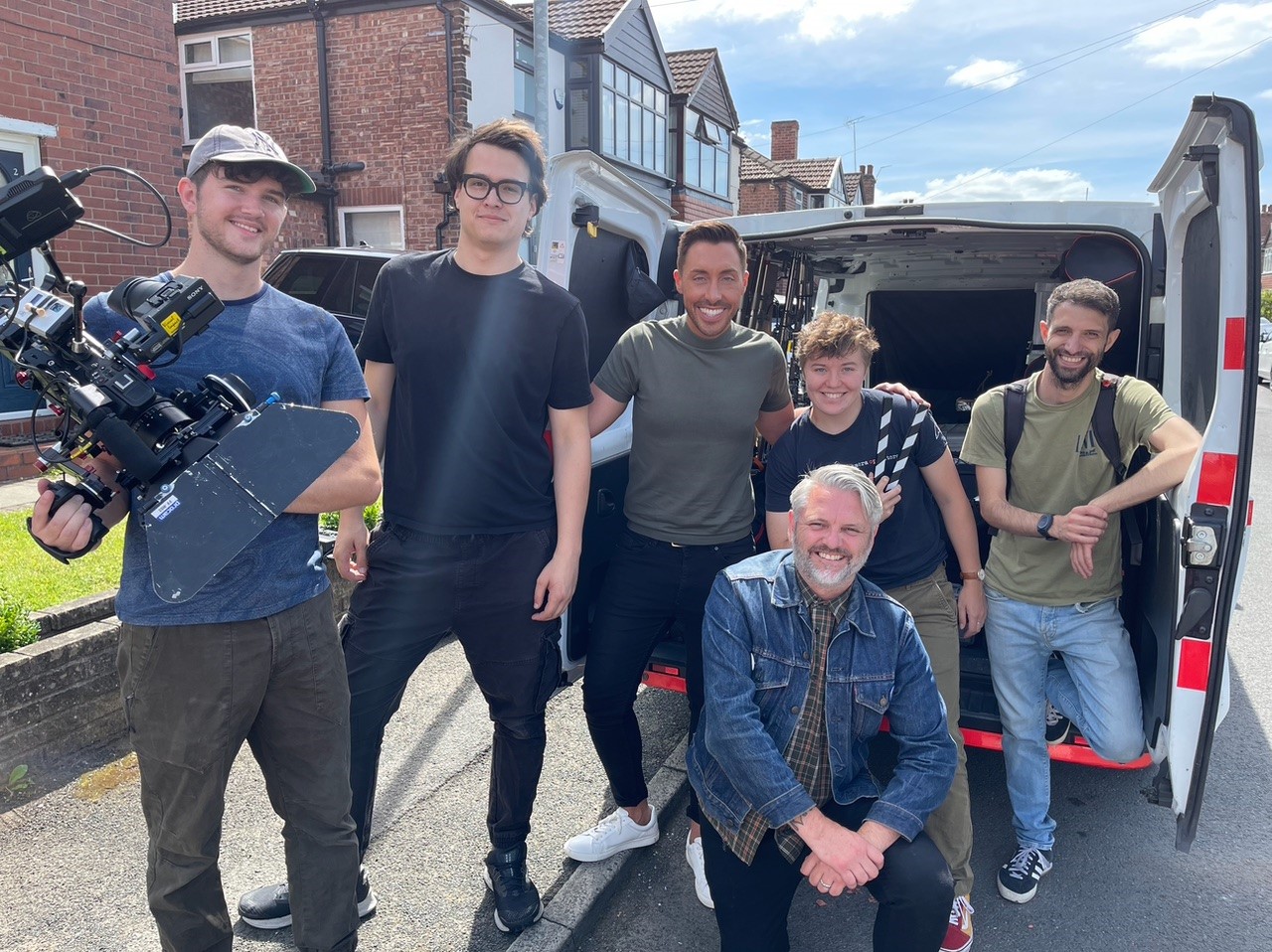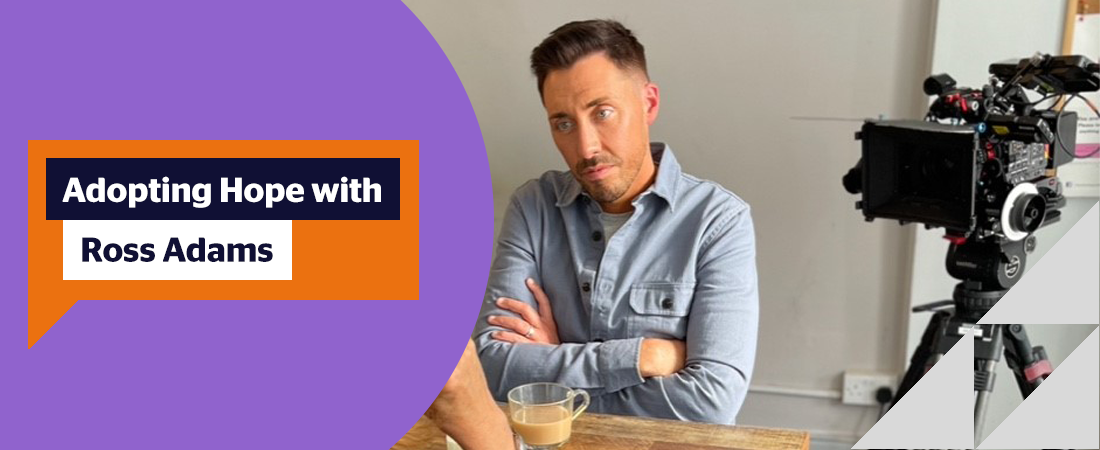Adopting Hope with Ross Adams
Adoption is a wonderful option and can be a delicate subject. Often, only the straightforward success stories are shared. What happens when potential adopters get caught in the complicated process?
This is the story from our Diverse Film Fund filmmaker Ross Adams, an award-winning actor best known for his role as Scott Drinkwell in Hollyoaks. He’s also the founder of Small Screen Talent, an award-winning television acting agency for youths. Ross was determined to understand the television industry. He worked at ITV as an Assistant to the Producer of Coronation Street and a Storyline and Script Editor for Emmerdale. He’ll be returning to behind the camera to reveal a cathartic story close to his heart. 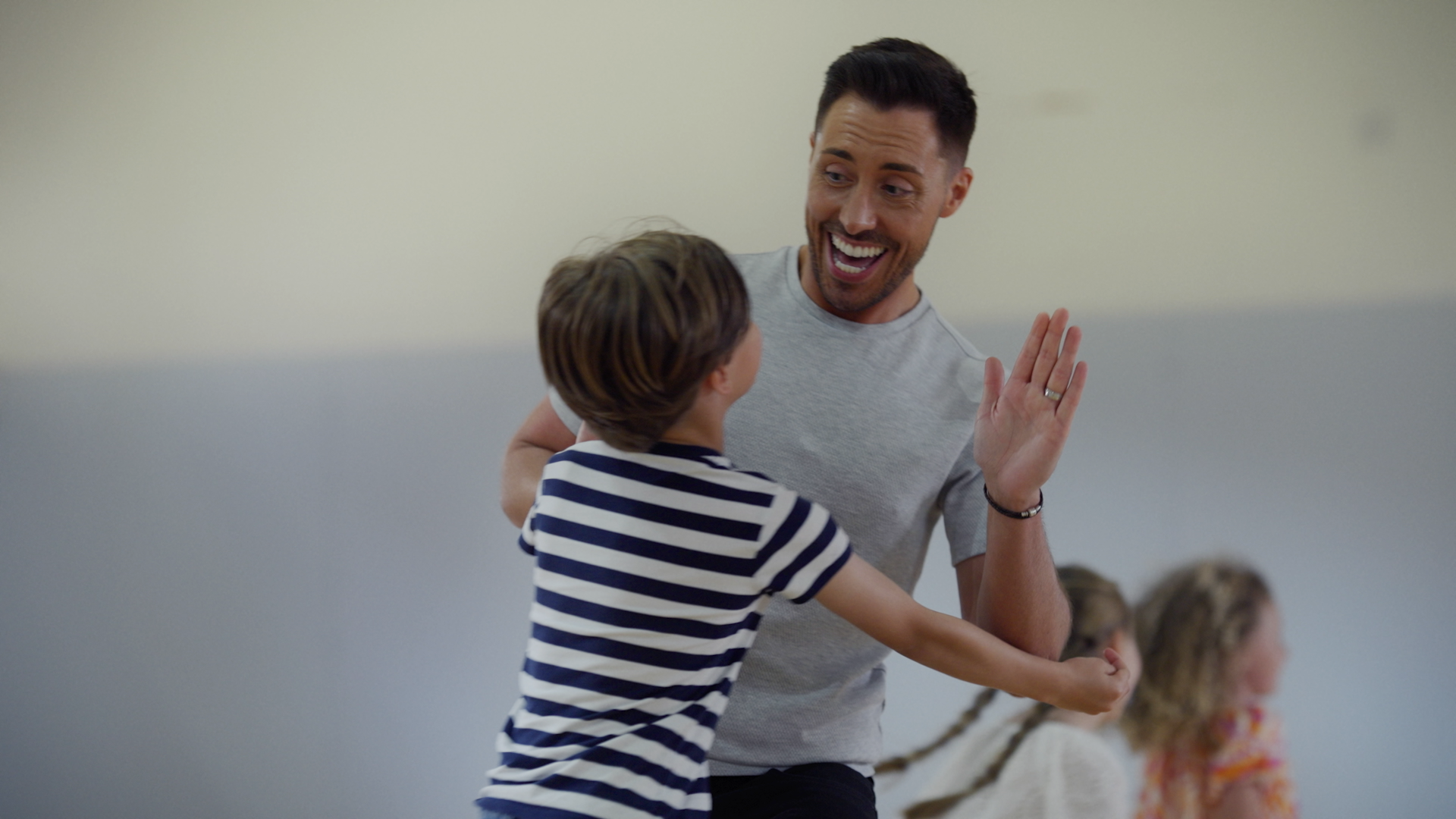
Ross’s film, Love Dad and Daddy, follows a painful adoption journey that comes to an abrupt halt. He explores what can be done to make the system easier for LGBTQ+ adopters. Can he find the strength to go through the process again? In a system where resilience is essential, “Love Dad and Daddy” sees Ross talking to other adopters in a deeply cathartic personal quest to rediscover his.
Together TV sat down with Ross to discuss his experience as a first-time filmmaker, receiving the fund and support from Together TV, and the difficulties of balancing executive and on-screen roles.
This interview has been edited for clarity and length.
Together TV: Can you tell us about the process of receiving the Diverse Film Fund?
Ross Adams: The Diverse Film Fund instantly grabbed me because it was specifically for LGBTQ filmmakers. I didn't expect that I would be picked purely because I've never made a film before.
TTV: What was the beginning of the process like?
RA: We had regular zoom webinars with different film and television industry people, including John Yorke. We had a session on compliance and intellectual property and all of these things that I'd not even considered before. That process took a good month, and then, once we had done that, it was time to crew up, and you're provided a Production Handbook that guides you in terms of a schedule.
TTV: What was challenging for you?
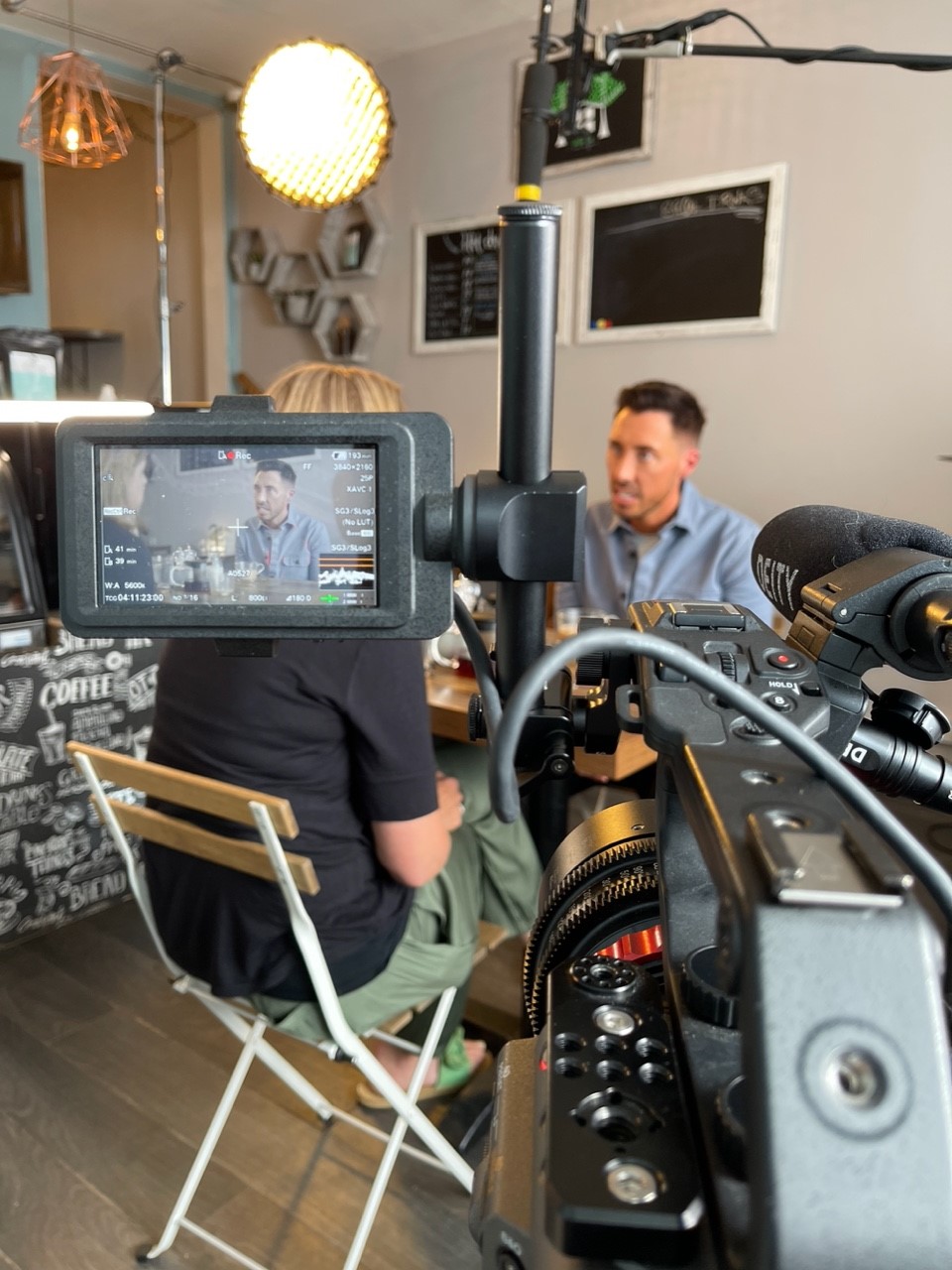 RA: The hardest thing for me, was actually finding crew. I thought because I've worked in TV, I'll find people I've worked with before. But people are busy, and I felt like I needed some support. Together TV provided an absolute angel in [film director] Tom Paul Martin. Without him, it probably wouldn't have happened and I am eternally grateful. We shot it all in three days.
RA: The hardest thing for me, was actually finding crew. I thought because I've worked in TV, I'll find people I've worked with before. But people are busy, and I felt like I needed some support. Together TV provided an absolute angel in [film director] Tom Paul Martin. Without him, it probably wouldn't have happened and I am eternally grateful. We shot it all in three days.
TTV: How was the filming process for you considering you were both behind and in front of the camera?
RA: One of the things that is quite challenging about my film is it’s a very personal story so I'm in front of the camera for a large part of the film. I needed a director because I needed someone who could share my vision and make it happen when I couldn't be behind the lens. Tom was that for me. We found a really good mix of contributors. We had the usual nightmares of one of the contributors pulling out last minute, but it didn't spoil the finished film because we had so much material. It was smooth sailing.
TTV: Can you talk about the editing process?
RA: I can't even edit reels on Instagram, so I knew I would need to find an editor. What was brilliant was that Tom, who was our director, was able to edit. The editing process is really collaborative. You have to put a lot of trust in your editor. Then you provide your feedback. I worried that having a lot of key crew in London would be tricky in terms of having to travel. But a lot of the process can be done remotely, I could watch cuts at home, and then provide my thoughts and feedback.
TTV: What were the most helpful resources you received from Together TV?
RA: Without the support from Together TV, this film would not have happened. I found a real passion for telling stories and making films. I was given a fantastic mentor in David Clews, who's a creative director for TwoFour. I sent him rough cuts, he was able to provide notes which really made me think. You also have the notes from the webinars and the packs Together TV made for us. It’s all there. I know if I make another film I'll use that information.
TTV: Do you have any advice for future filmmakers, specifically those who haven’t made a film before? 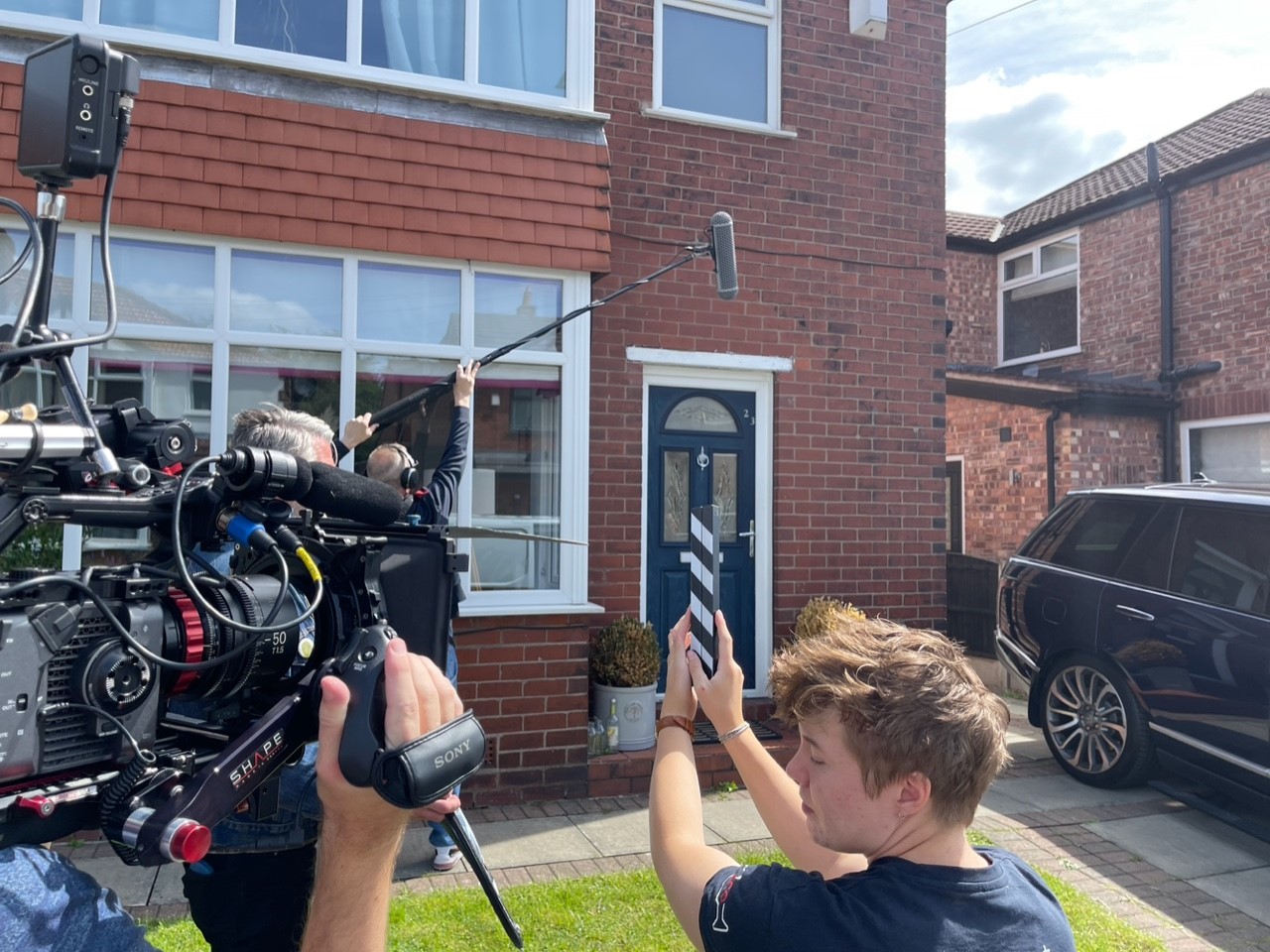
RA: My advice to anybody who wants to apply for the Diverse Film Fund is: do it. Because if I can do it, genuinely anybody can. You will get a lot of support, and you'll get a lot of help from Together TV. One of the brilliant things about the Diverse Film Fund is that it supports people who might feel like they aren't able to tell their stories. If you've got a story to share, then you should share that story.
TTV: What do you hope people will take away from this film?
RA: I wanted to make a story that would make people think because [adoption] can often be sugar coated. The reality is it's difficult and it's hard and things don't always go according to plan. I was really proud of the balance that was struck because I shared enough of my story to let the audience know what happened but we also talked to people from adoption charities and the adoption process. I hope it inspires people because I think adoption is a brilliant, brilliant thing, but it’s also important to understand that things can go wrong. What can you do to prevent those things from happening, because it's all worth it in the end.
Love Dad and Daddy premieres Monday, 21st November on Together TV. You can watch on Freeview 83, +1 Channel 92, Sky 170, Virgin 269, Freesat 164 and online via our streaming service: watch.togethertv.com.
